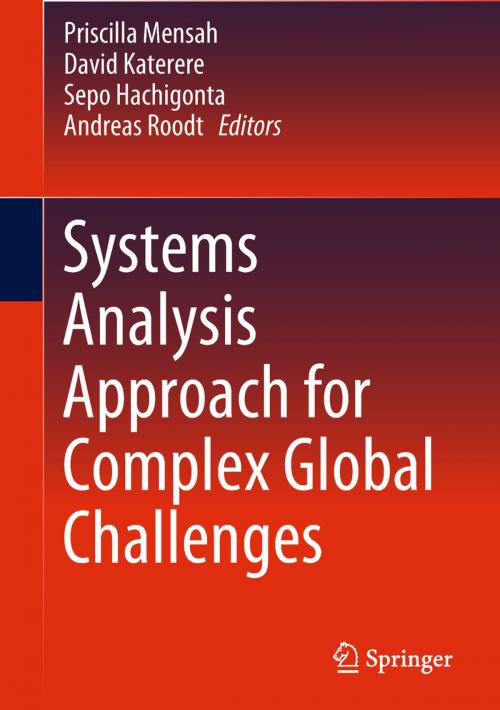Systems Analysis Approach for Complex Global Challenges
Nonfiction, Science & Nature, Science, Earth Sciences, Technology| Author: | ISBN: | 9783319714868 | |
| Publisher: | Springer International Publishing | Publication: | April 9, 2018 |
| Imprint: | Springer | Language: | English |
| Author: | |
| ISBN: | 9783319714868 |
| Publisher: | Springer International Publishing |
| Publication: | April 9, 2018 |
| Imprint: | Springer |
| Language: | English |
This book, which contains a collection of review articles as well as focus on evidence-based policy making, will serve as a valuable resource not just for all postgraduate students conducting research using systems analysis thinking but also for policy makers. To our knowledge, a book of this nature which also has a strong African focus is currently not available. The book examines environmental and socio-economic risks with the aim of providing an analytical foundation for the management and governance of natural resources, disasters, addressing climate change, and easing the technological and ecological transitions to sustainability. It provides scientific and strategic analysis to better understand the dynamics of future energy transitions, their main driving forces, enabling factors, barriers, as well as their consequences for the social, economic and environmental dimensions of human wellbeing. Science-based policy advice is achieved through an integrated assessment and modeling of how to simultaneously address the major energy policy challenges in the areas of environment (climate change and air pollution), energy poverty (or access to affordable and clean energy for the poor), energy security and reliability. It also aims to improve our understanding of ecosystems and their management in today’s changing world—in particular, the current state of ecosystems, and their ecological thresholds and buffering capacities. It provides support for policy makers in developing rational, realistic and science-based regional, national and global strategies for the production of fuel, food and fibre that sustain ecosystem services and safeguard food security. Finally, it addresses the human development dimension of global change based on comprehensive studies on the changing size and composition of human populations around the world by analyzing both their impacts and the differential vulnerabilities by age, gender and level of education.
This book, which contains a collection of review articles as well as focus on evidence-based policy making, will serve as a valuable resource not just for all postgraduate students conducting research using systems analysis thinking but also for policy makers. To our knowledge, a book of this nature which also has a strong African focus is currently not available. The book examines environmental and socio-economic risks with the aim of providing an analytical foundation for the management and governance of natural resources, disasters, addressing climate change, and easing the technological and ecological transitions to sustainability. It provides scientific and strategic analysis to better understand the dynamics of future energy transitions, their main driving forces, enabling factors, barriers, as well as their consequences for the social, economic and environmental dimensions of human wellbeing. Science-based policy advice is achieved through an integrated assessment and modeling of how to simultaneously address the major energy policy challenges in the areas of environment (climate change and air pollution), energy poverty (or access to affordable and clean energy for the poor), energy security and reliability. It also aims to improve our understanding of ecosystems and their management in today’s changing world—in particular, the current state of ecosystems, and their ecological thresholds and buffering capacities. It provides support for policy makers in developing rational, realistic and science-based regional, national and global strategies for the production of fuel, food and fibre that sustain ecosystem services and safeguard food security. Finally, it addresses the human development dimension of global change based on comprehensive studies on the changing size and composition of human populations around the world by analyzing both their impacts and the differential vulnerabilities by age, gender and level of education.















